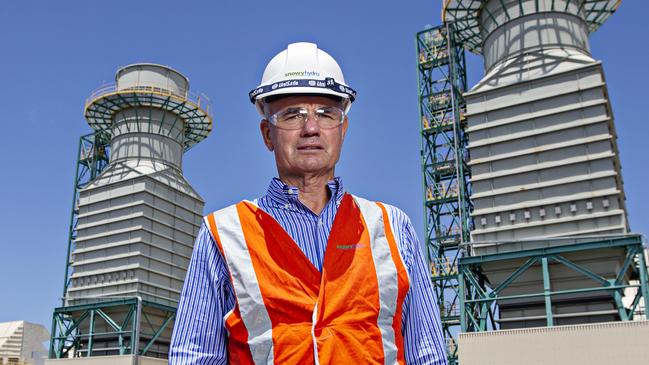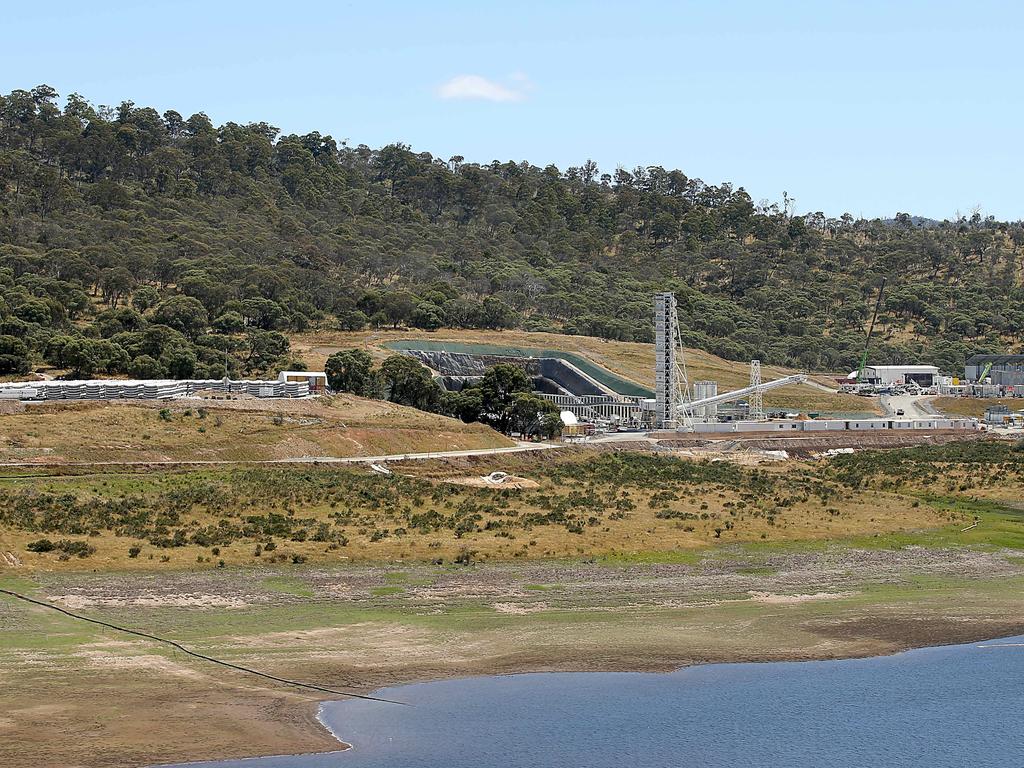Snowy Hydro boss gets $1m payout despite project blowout
Former Snowy Hydro boss Paul Broad received a taxpayer funded payout of nearly $1m when he retired last year despite the project being beset by ongoing delays and cost blowouts.

Former Snowy Hydro chief executive Paul Broad received a taxpayer funded payout of nearly $1m when he retired last year despite the mega pumped hydro project being beset by ongoing delays and big cost blowouts.
The Australian can reveal Mr Broad was given an $889,111 termination benefit when he sensationally quit the project last year after clashing with newly appointed Climate Change and Energy Minister Chris Bowen when Labor took government last May.
Mr Broad on Wednesday blamed his departure on Mr Bowen, telling The Australian he was shown the door during a meeting in which he was told the new minister had lost confidence in him.
Mr Broad doubled down on attacks against Labor’s 82 per cent renewable energy targets calling them “physically impossible” and “in no way achievable” and argued “the energy sector is too fundamental to our economy to play Russian roulette, which seems to be what we are doing with renewables right now”.
The Australian has been told Mr Broad was told to go about two weeks after he was paid a $1.2m bonus for the previous year.
The new figures are contained in the company’s annual report tabled in parliament, which reveals the company’s top brass were paid over $9.5m in the past financial year.
Bonuses were paid to top executives despite the annual report acknowledging the delivery of major projects in the past financial year fell “well short of the board’s expectations”.
Earlier this year, Mr Broad accused Mr Bowen of misleading Australians about the complexity of decarbonisation and warned the nation’s transition to renewables would take 80 years.
Mr Broad’s total remuneration for the past financial year now amounts to a total of more than $1.2m, despite retiring in October.
A spokeswoman for Mr Bowen said Labor was concerned about the lack of transparency from the project and the former government when it took office.
“As the minister has made clear, the new government was deeply concerned about the state of Snowy 2.0 and other projects on coming to office and the lack of public transparency from Snowy Hydro and the former government,” the spokeswoman said.
“The Albanese government is delighted with the progress and improvements made by the new CEO, Dennis Barnes.”
According to the company’s annual report, Snowy Hydro bonuses were still paid to top executives despite the company failing to meet a critical safety target required for short-term bonuses to be paid.
However, executives were paid nearly $1.9m in bonuses, a sharp fall from the previous year when $4.5m was paid.
The company this year has quietly abolished a critical safety target requiring there to be no fatalities to either an employee or contractor for annual bonuses to be paid. Instead, safety now makes up 15 per cent of an overarching assessment in considering executive bonuses.
The Australian in July revealed the board was reviewing the company’s safety performance following the death of Alan Machon, a worker who died in a single-vehicle crash about 40km northwest of Cooma in NSW.
New CEO Mr Barnes in May revealed that full operation of the mega pumped-hydro project was now expected between June and December 2029 at the latest, almost five years behind its original projected completion date.
The cost of building the federal government-owned Snowy 2.0 hydro project in NSW has more than doubled, with an estimated $12bn price tag heaping pressure on Canberra amid concerns over the retirement of coal plants.
The company’s annual report also revealed the project’s total dividends paid had plummeted to $84m, which is its lowest ever – taking the total over five years to about $827m.
This is a dramatic reduction in dividends first forecast of $275m per year when the Turnbull government invested in 2018.
The 2000MW pumped hydro storage project has been beset by problems that forced prolonged delays and swelled the taxpayer bill. Snowy was initially projected to cost around 2bn and be completed in 2021, but was revised to nearly $6bn. After a spate of technical problems and disruptions from Covid-19, the bill is now expected to be around $12bn – although Mr Bowen says the project will fill a vital role in Australia’s energy transition.
A Snowy Hydro spokeswoman said: “Snowy Hydro project-related KPIs, including the Snowy 2.0 Safety KPI, were reduced to ‘below threshold’ performance resulting in a nil payment against each of them.”







To join the conversation, please log in. Don't have an account? Register
Join the conversation, you are commenting as Logout